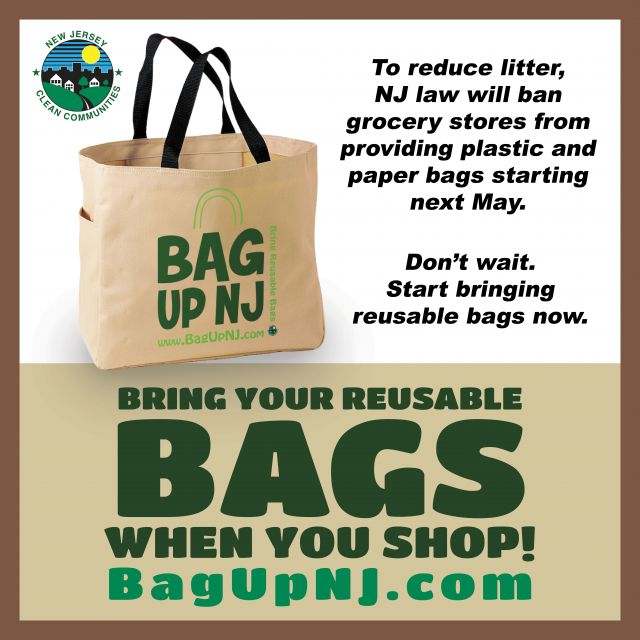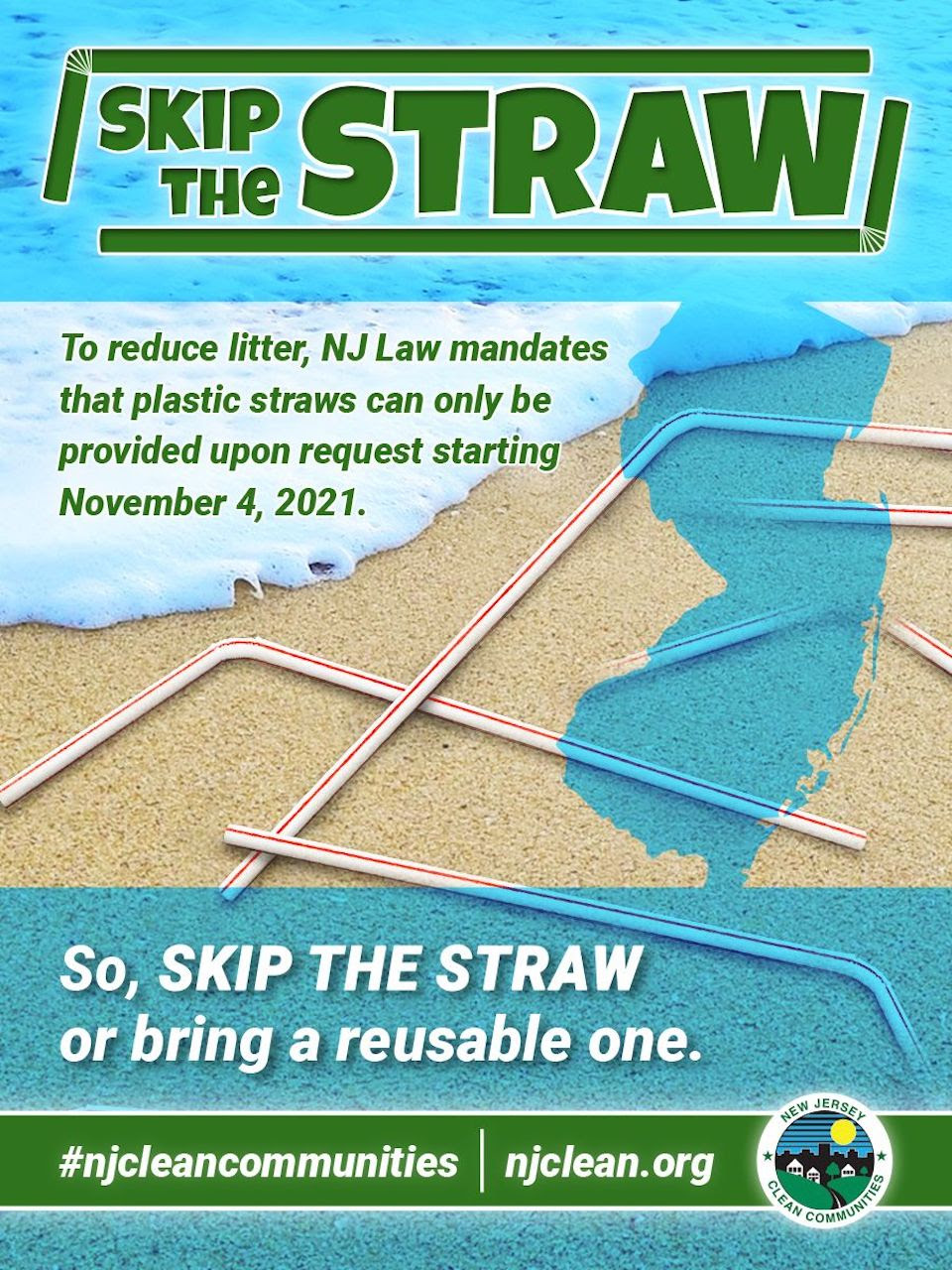New Jersey Clean Communities is a statewide, comprehensive, litter-abatement program created by the passage of the Clean Communities Act in 1986. The Act provides a funding source for the program by placing a tax on fifteen categories of businesses that may produce litter-generating products. The Clean Communities Program Fund generates about $ 20 million each year and is disbursed each year to municipalities (80%), counties (10%), state parks service (10%), and the New Jersey Clean Communities Council, Inc. ($375,000).

The Act also provides guidelines on the use of funds. Municipalities and counties must implement litter abatement programs that incorporate the elements of cleanup, enforcement and education. Municipalities and counties must file statistical reports with the New Jersey Clean Communities Council, Inc. every grant year. Statistical reports track the expenditure of funds and the progress of local programs.
The New Jersey Clean Communities Council, Inc. (NJCCC) is the 501c3 nonprofit that works closely with the New Jersey Department of Environmental Protection and the New Jersey Department of Treasury to administer the Clean Communities program. The Clean Communities Council began as an advisory committee to the Department of Environmental Protection’s Clean Communities program in 1989. In 1995, in the face of state budget cuts that virtually eliminated the state positions that provided program oversight and statewide education for the program, the advisory committee sought and received nonprofit status; and became the New Jersey Clean Communities Council, Inc.
The Clean Communities Council oversees the implementation of litter abatement programs in 558 municipalities and 21 counties, collects statistical reports, maintains a database of information that tracks local programs, and implements a statewide program of public information and education that targets Clean Communities coordinators, schools, and the general public. The Clean Communities Council also administers New Jersey’s Adopt-a-Beach and Adopt-a- Highway programs.
Wharton holds a Clean Communities Clean Day each year in June. This day residents, groups and organizations come together and help pick up recycling and litter from all over town. Clean Communities pays for assemblies at the local schools, library and summer camp. Funds are used to help with the costs of trash/recycling containers throughout town.
You can download Recycle Coach to help with recycling/trash information here in Wharton. You can also download Litterati and Clean Swell apps to track any recycling or litter you may pick up anywhere in the state and other states.

Ban on Single-Use Carryout Bags, Ban on Polystyrene Foam Food Service Products, and Plastic Straws By-Request Only
Ban on Single-Use Carryout Bags:
- Beginning May 4, 2022, State law prohibits all Stores (including retail), Food Service Businesses, and Grocery Stores from selling to, or providing their customers with, single-use plastic carryout bags. In addition, Grocery Stores larger than 2,500 square feet may not provide or sell single-use paper carryout bags, and instead may provide or sell only reusable carryout bags.
-
Definitions:
- "Store" is any grocery store, convenience store, liquor store, pharmacy, drug store, or other retail establishment.
- "Food Service Business" sells or provides food for consumption on or off the premises, including, but not limited to, establishments such as a restaurant, café, delicatessen, coffee shop, convenience store, grocery store, vending truck or cart, food truck, movie theater, or business or institutional cafeteria, including those operated by a government entity.
- "Grocery Store" is a self-service retail establishment that occupies at least 2,500 square feet, and that sells household foodstuffs for off-site consumption, including but not limited to fresh produce, meat, poultry, fish, deli products, dairy products, canned foods, dry foods, beverages, baked foods, or prepared foods.
Reusable Carryout Bags:
-
A "reusable carryout bag" must be:
- Made of polypropylene fabric, PET nonwoven fabric, nylon, cloth, hemp product, or other washable fabric; and
- Have stitched handles;
- Be designed and manufactured for multiple reuses.
Ban on Polystyrene Foam Food Service Products:
- Beginning May 4, 2022, the law prohibits all persons and food service businesses from selling/offering for sale any polystyrene foam food service product and prohibits all food service businesses from selling/providing any food served in a polystyrene foam food service product.
-
The following products are exempt until May 4, 2024 unless otherwise extended by the DEP:
- Disposable, long-handled polystyrene foam soda spoons when required and used for thick drinks.
- Portion cups of two ounces or less, if used for hot foods or foods requiring lids.
- Meat and fish trays for raw or butchered meat, including poultry, or fish that is sold from a refrigerator or similar retail appliance.
- Any food product pre-packaged by the manufacturer with a polystyrene foam food service product.
- Any other polystyrene foam food service product as determined necessary by the DEP.
- A "polystyrene foam food service product" is defined as a product made, in whole or in part, of polystyrene foam that is used for selling or providing a food or beverage, and includes but is not limited to a food container, plate, hot or cold beverage cup, meat or vegetable tray, cutlery, or egg carton.
- Further exemptions and requests for waivers for polystyrene foam food service products may be submitted to the Department of Environmental Protection (DEP) on forms to be prescribed.
- Contact for the NJDEP Division of Solid and Hazardous Waste is singleuseplastics@dep.nj.gov or 609-984-4250
Requirements for Single-use Plastic Straws:
- Beginning on November 4, 2021, food service businesses shall only provide a single-use plastic straw to a customer upon request by the customer. Food service businesses are required to keep an adequate supply of single-use plastic straws. Stores may continue to sell packages of single-use plastic straws and provide/sell a beverage pre-packaged by the manufacturer with a single-use plastic straw, i.e., juice boxes
Penalties for Non-compliance and Enforcement:
- A person or entity that violates the law will be warned for a first offense, may be fined up to $1,000 per day for the second offense, and may be fined up to $5,000 per day for the third and subsequent violations. Violations of a continuing nature constitute an additional, separate, and distinct offense for each day that is deemed a violation.
- The DEP, municipalities and any entity certified pursuant to the "County Environmental Health Act" are authorized to enforce the law.
For more information visit-https://www.nj.gov/dep/plastic-ban-law/#single_use_bags

